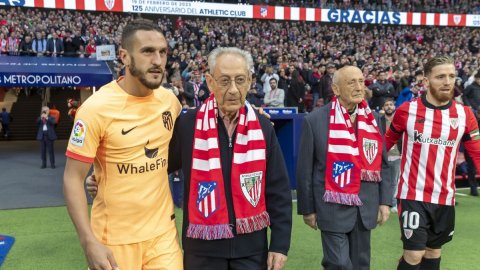
Manuel Garnica Serrano: They both wear red and white and have similar names, but the relationship between two of Spain's oldest clubs is more formal than other such rivalries. The clash between Atletico de Madrid and Athletic Club is not only a huge game because it features two sides currently inside the top five of La Liga standings, but it is also a duel between two clubs with a lot in common.
While many people know that these two clubs both wear red and white and both have similar names, not everyone knows that their relationship is more formal than that.
Atletico de Madrid was established back in April 1903 as Athletic Club de Madrid, with the founders being Basque fans of Athletic Club de Bilbao, who were studying in the Spanish capital and who wanted to maintain the connection with their team. Athletic Club de Madrid naturally took their colours from their ‘parent’ club, which had been established five years previously. Both initially wore blue and white chequered shirts, before switching to their current red and white stripes in 1911 after famously receiving a set of jerseys originally made for English club Southampton.

